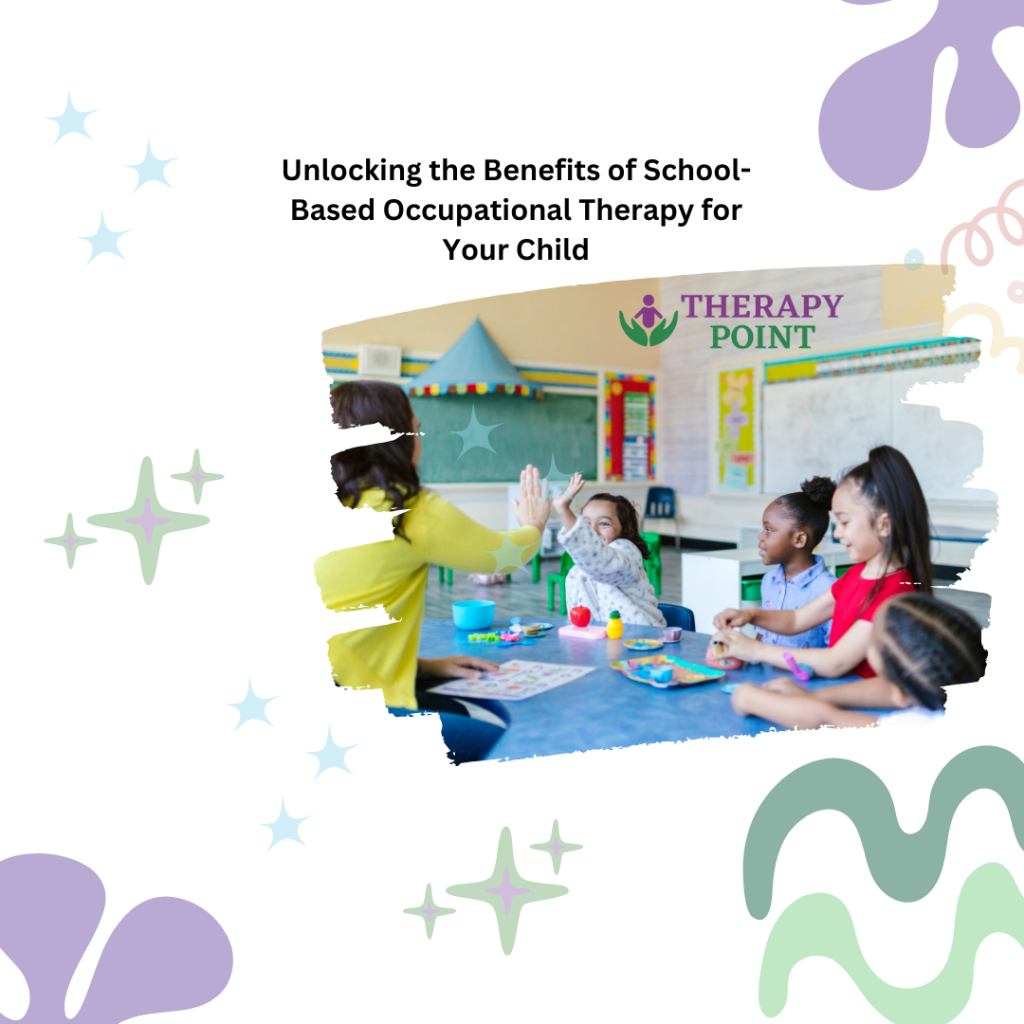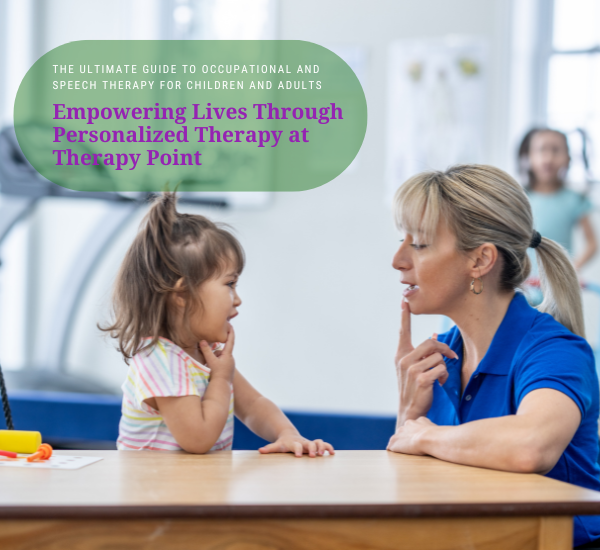-

7 Fun and Effective Ways to Improve Handwriting Skills at Home
17 March 2025 -

How Art and Craft Support Children’s Skill Development at Therapy Point
28 April 2025 -

Unlocking the Benefits of School-Based Occupational Therapy for Your Child
25 May 2025 -

The Ultimate Guide to Occupational and Speech Therapy for Children and Adults
06 January 2025

Unlocking the Benefits of School-Based Occupational Therapy for Your Child
Unlocking the Benefits of School-Based Occupational Therapy for Your Child By Jasper Julao / May 25, 2025 Supporting your child’s development through tailored therapy in familiar learning environments At Therapy Point, we understand that every child’s journey is unique—and the right support makes all the difference. Our Occupational Therapists (OTs) work across diverse settings, including clinics, homes, communities, and schools, to help children build essential life skills. School-based occupational therapy, in particular, brings therapy directly into one of the most familiar and important spaces in a child’s daily life: their classroom. But how do you know if school-based therapy is the right approach for your child? Let’s explore its benefits, potential challenges, and how Therapy Point can support you in choosing the best path forward. 1. Familiar School Settings That Support Growth One of the key advantages of school-based occupational therapy is the opportunity for children to receive support in an environment they know and navigate daily. Being in a familiar place can reduce anxiety, boost motivation, and encourage active participation in therapy. Our OTs can observe real-time challenges—whether it’s difficulty focusing during lessons or interacting with peers—and implement strategies on the spot. This hands-on, context-specific approach can lead to quicker progress and greater confidence in handling school-related tasks. However, if your child is sensitive to busy environments or needs a quieter, more structured space, our clinic-based OT services in Seven Hills and Gledswood Hills might offer a better setting. 2. Collaborative Care Between OTs and Teachers School-based therapy creates ongoing opportunities for collaboration between therapists and educators. Your child’s OT can work closely with their teacher to set functional goals that support academic performance, social interactions, and emotional regulation. Frequent communication between the OT and school staff ensures your child is supported throughout the school day and therapy strategies are being applied effectively. This collaborative approach, combined with our holistic view of your child’s needs, enhances both learning and development outcomes. 3. The Role of Parents in School-Based Therapy While school-based therapy is highly effective, one challenge is the limited face-to-face interaction between parents and the OT. Despite this, your involvement remains crucial. At Therapy Point, we prioritize regular email updates and provide parents with at-home strategies that align with school-based goals. Your insights into how your child is progressing at home, including any new behaviors or concerns, help our therapists refine their approach. Open, two-way communication is key to maximizing therapy outcomes. Which Goals Work Best in a School Setting? Common school-based OT goals include: Improving handwriting and fine motor skills Strengthening gross motor coordination Enhancing emotional regulation Supporting peer interactions and social skills Developing executive function (e.g., focus, planning, transitioning) While many developmental areas can be addressed at school, some goals—particularly those involving self-care, such as toileting—require parental involvement and privacy, making them better suited to our clinic-based programs. Need Help Deciding What’s Best for Your Child? Choosing between school-based and clinic-based OT can feel overwhelming. If you’re unsure what setting will best support your child’s goals, our friendly team is here to guide you. 📞 Call us at 1300 090 8054 📧 Email info@therapypoint.com.au Let’s work together to help your child build skills, confidence, and independence—at school, at home, and beyond.
0 comments